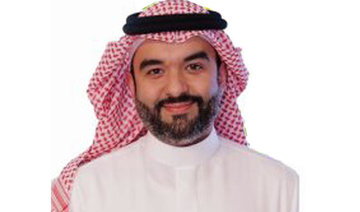JEDDAH: The Kingdom of Saudi Arabia has always paid great attention to the communications and information technology (IT) sector, which is one of the oldest governmental sectors. Since the era of founder King Abdul Aziz Al-Saud, the postal and telecommunication services have been an essential link between the Kingdom’s sprawling regions, separated by great distances. An order was issued in 1926 to establish the Directorate of Posts, Telegraph and Telephones (PTT), to take care of all the postal and telecommunication services. In 1934, 22 wireless stations were opened to link 22 cities and villages in the Kingdom through telegraph services.
King Salman also showed great interest in the sector and launched in 2016 the Kingdom’s Vision 2030, which was adopted by Crown Prince Mohammed bin Salman. The vision focuses on developing the sector in the Kingdom in accordance with international developments.
With the flourishing economy, Vision 2030 reflected the state’s concern to develop its digital infrastructure, as this is vital in building advanced industrial activities, attracting investors and improving the competitiveness of the national economy.
Therefore, communications and IT infrastructure will be developed through partnerships with the private sector, especially high-speed broadband technology, to increase coverage in cities and outskirts and optimize the quality of the calls. The Vision aims for a coverage of more than 90 percent of houses in densely populated cities and 66 percent in other areas.
The state will promote the governance of the digital transformation through a national council that supervises the process and will also support the transformation at the governmental level.
The communication and IT sector in the Kingdom has seen important changes, including the first negotiations with companies abroad to buy wireless devices and establishing a wireless network in 1925. The state then worked on expanding the international telegraph service through submarine cables across the Red Sea between Jeddah and Port Sudan, where the Port Sudan Conference was held in 1926 for this purpose.
Up until 1934, when the telephone service was first introduced to the country, the phone lines linked to the manual telephone exchanges in Riyadh, Makkah, Madinah, Jeddah and Taif did not exceed 854 in number.
During this era, the magnetic phone was used, which was dry-cell powered. This phone operated within the same neighborhood or city, through operators working around the clock to connect calls through a manual switchboard.
In 1984, a royal decree was issued to build an international wireless station in Jeddah. The state’s great interest in the sector led to the creation of the Communications Ministry, led by Prince Talal bin Abdul Aziz. The Directorate of Posts, Telegraph and Telephones (PTT) became part of the ministry in 1953. King Saud Al-Saud inaugurated the first phone calls between the Kingdom and Egypt, Syria, Lebanon and Bahrain in 1955.
King Al-Saud also introduced the first “telex” teleprinters, the Loren 2133 and the Siemens T37h with Arabic alphabets.
Telegraph remained the main means of communication until phone services were developed.
The state established the Ministry of Post, Telegraph, and Telephone (PTT) to handle the sectors of telegraph and communications in 1975, at a time when phone lines did not exceed 130,000, with revenues of SR250 million ($66.7 million).
In 1984, the first optical fiber cables were used, and call centers were established in all the regions of the Kingdom.
In 1987, King Fahd Satellite Telecommunications City was launched between Makkah and Jeddah. In 1995, mobile telephones were introduced in the Kingdom.
To provide trusted and developed services, the Communications Commission was established in 2001, to handle the organization of this sector and the issuance of licenses for companies. Information Technology was added to the commission’s missions and it became the Communications and Information Technology Commission (CITC) in 2003.
CITC has developed a strategic plan aiming to organize the sector to take it to high levels of competitiveness and ensure a suitable environment for investors. The Communications and IT Ministry is looking to extend the fiber optic system to 2.1 million houses in urban areas by 2020, to develop the infrastructure of communications, speed up the transfer toward the cognitive economy and match the goals of the National Transformation Program 2020.
The ministry has linked 400,000 houses with fiber-optic networks and 110 thousand houses with broadband wireless networks, and is also working on covering 70 percent of the remote houses with broadband wireless networks by 2020.
In 2016, more than SR130 billion ($34 billion) were spent on communications and IT services, where the sector’s contribution in the GDP reached 6 percent, and 10 percent in the non-oil domestic product.
The expenditure allocated for communications and IT is expected to increase due to big investments by the governmental and private sectors, and to become compatible with the National Transformation program 2020, as one of the main programs supporting the Vision 2030.


























